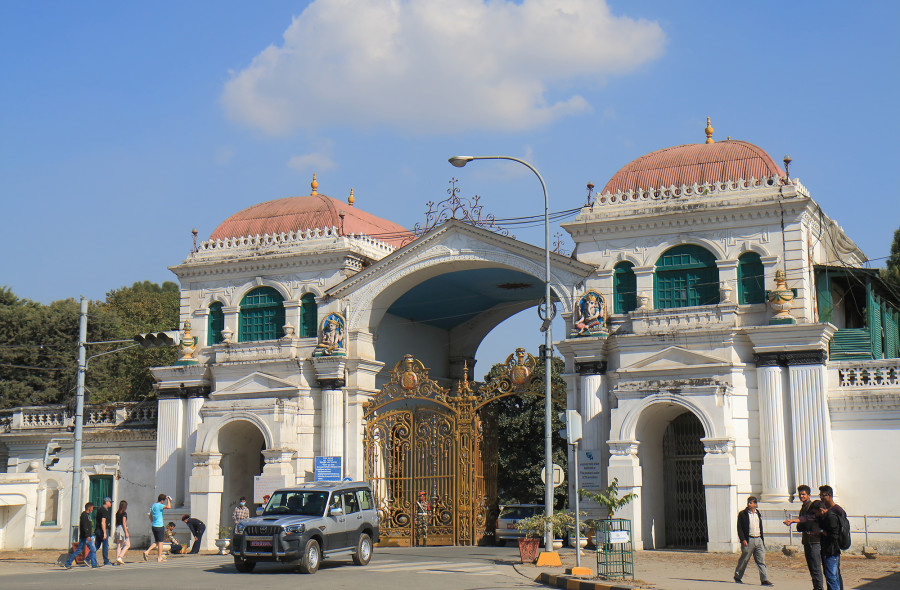National
Bypassing the bidding process, Cabinet plans to award $16 million ID card project to French company
Public procurement law mandates a public call for bids while awarding contracts above one million rupees
Anil Giri
Circumventing the mandatory competitive bidding process for public tenders, the government is planning to award a $16 million contract to expand facilities for the national identity card project to French company IDEMIA.
As per a breakdown of the project, IDEMIA received a contract worth $8 million for the installation of identity card enrolment centres in 77 districts, along with the installation of hardware, software, and Automated Fingerprint Identification System (AFIS). Another $8 million is being offered in a maintenance contract for four years.
Home Secretary Prem Kumar Rai confirmed to the Post that the Cabinet had directed the Department of National ID and Civil Registration to hold negotiations with IDEMIA and seal the deal.
“All proper processes in awarding the tender was made as per the Public Procurement Act,” said Rai. “I do not know the details of how the Cabinet took the decision because the Department of National ID and Civil Registration conducted the negotiations.”
Several attempts to reach Dipak Kafle, director-general of the Department of National ID and Civil Registration by phone were unsuccessful.
However, there have been no public calls for a bid for the project awarded to IDEMIA. As per Clause 31 of public procurement regulations, public entities shall have to procure goods, services or construction work valuing above one million rupees through an open competitive bidding process.
IDEMIA is represented in Nepal by the Advantage Group, headed by Rameshwor Thapa, chairman of the Nepal News Network International which publishes The Annapurna Post and owns the AP1 television channel. Thapa is considered to have close relations with Prime Minister KP Sharma Oli and a number of ruling party leaders.
A number of officials said that IDEMIA was awarded the contract to give continuity to the previous system. In 2013, IDEMIA, then known as Morpho SAS, was awarded a contract to provide 110,000 national identity cards as a pilot project. The contract was awarded at $4.9 million and IDEMIA/Morpho completed the pilot project of installing a national ID card system, including hardware, software and printing facilities, but was faulted for slow delivery and poor work performance. Morpho SAS has now rebranded itself as IDEMIA after a merger between the two firms.
If a new bid was called, the system built earlier by IDEMIA/Morpho would have collapsed and much more would have been spent on purchasing a new system, according to officials from the Department of National ID and Civil Registration.
While the Cabinet decided to continue working with IDEMIA for the national ID card project, the delivery, supply and testing of desktop computers, laptop computers, printers, scanners, protocol data units, and external hard disks will be procured through a new contract. A public notice has already been issued by the Department of National ID and Civil Registration for the procurement of these essentials. Another bidding call for the installation of printing facilities will be made soon, said officials.
Starting three months ago, officials at the Department of National ID and Civil Registration held several rounds of negotiations, and last week, a Cabinet meeting had issued a letter of intent to IDEMIA, two Home Ministry officials confirmed to the Post. The Department of National ID and Civil Registration works under the aegis of the Home Ministry.
This procurement process constitutes a severe breach of procurement law, said officials at the Public Procurement Monitoring Office.
“In case of an emergency, the government can directly make a procurement but we are not facing any emergency. Direct procurement also works for a government-to-government deal, but this contract is not with a government,” said Keshav Prasai, a senior official at the Public Procurement Monitoring Office. “But I do not know how the Cabinet awarded the contract, because I have not seen the papers.”
Article 2(n) of the Public Procurement Act outlines “special circumstance” as one that results from a natural or divine calamity, such as drought, earthquake, flood, or landslide, or war or internal conflict. Nepal is not currently in any such situation.
Similarly, Article 15 of the public procurement law states that an international bid shall be invited where goods or construction works, as requisitioned by a public entity, are not available under competitive prices from entrepreneurs or suppliers within Nepal.
Furthermore, Article 41 allows one supplier, entrepreneur, consultant or service provider to be awarded the bid if only they have the technical efficiency or capacity to fulfil requirements.
None of these conditions applies to IDEMIA and the contract regarding the national ID card project.




 9.51°C Kathmandu
9.51°C Kathmandu














